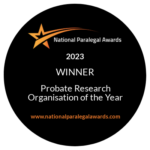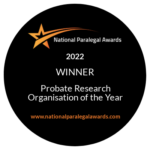How to Use Wills and Probate Records in Your Genealogy Research
When it comes to researching & verifying family trees and the distribution of estates, one of the most useful sources of information is probate documents. Wills and probate records not only determine how an estate was to be distributed according to a testator’s wishes but also provide information on who they were, their descendants and what they owned. Throughout the ages, wills have been made for all classes of people, and accessing them can reveal a great amount of genealogical information.
Therefore, here is our guide on using wills and probate records to research a family tree.

Files in the storage space
What information can I find using probate records?
When looking through probate records, you can often find the following information:
- Information on the testator including their full name, where they lived and their occupation.
- The date the will was drawn up and signed.
- Details of the testator’s family, including in-laws and grandchildren.
- Any property owned or leased by the testator.
- The date the will was proved. If probate was granted sometime after the testator’s death, the date and circumstances of their death might be included.
The terminology used when researching probate records
Here are some of the words commonly used in probate record research:
- Will – A legal document that sets out how an individual’s estate should be distributed upon their death.
- Probate – The legal process of obtaining a grant that allows the executor to oversee the administration of a will.
- Executor – An appointed representative who oversees the administration of the deceased’s estate. They are named as executor in the will itself and may sometimes need to prove to a court that the will is valid before administering it.
- Grant of probate – A legal document that confirms the executor has the authority to oversee the administration of the deceased’s estate.
- Testator – The person who makes the will setting out how their estate should be distributed after their death.
- Codicil – An additional document that adds to, changes, removes or clarifies something in the original will.
- Intestacy – The situation that occurs where a person dies without a valid will and their estate must be distributed based on other legal criteria. See here for more information on Intestacy Rules
For more terms used in probate research, visit our Glossary page.
Where to find probate records
When it comes to registered wills and probate documents in England and Wales, you can find the original records in several places. Firstly, the Principal Registry of the Family Division (PPR) holds original will documents. However, all documents must be requested online as they no longer maintain a public search area. Secondly, you can find wills from before 1858 in the National Archives (TNA) or in local church records. Check the TNA Discovery website to find the locations for these local records.
Contact us today!
Here at Anglia Research, we are happy to help family members or Personal Representatives with any queries about probate genealogy research and processes. Contact us today for your free consultation.
2025 Anglia Research Services All Rights Reserved.
Anglia Research and Anglia Research Services are trading names of Anglia Research Services Limited, a company registered in England and Wales: no. 05405509
Marketing by Unity Online










